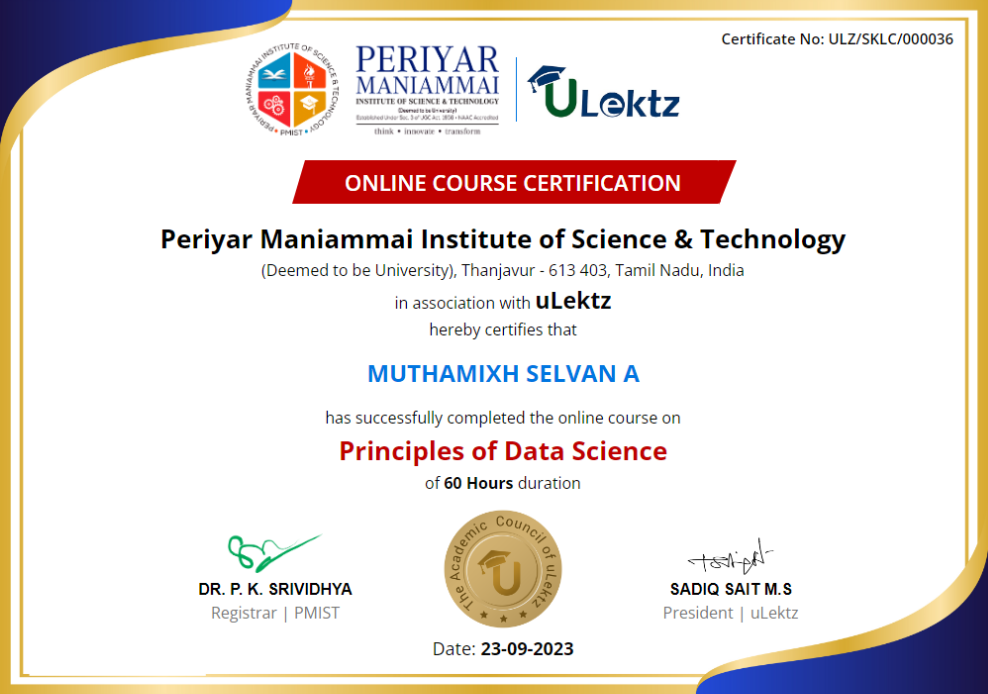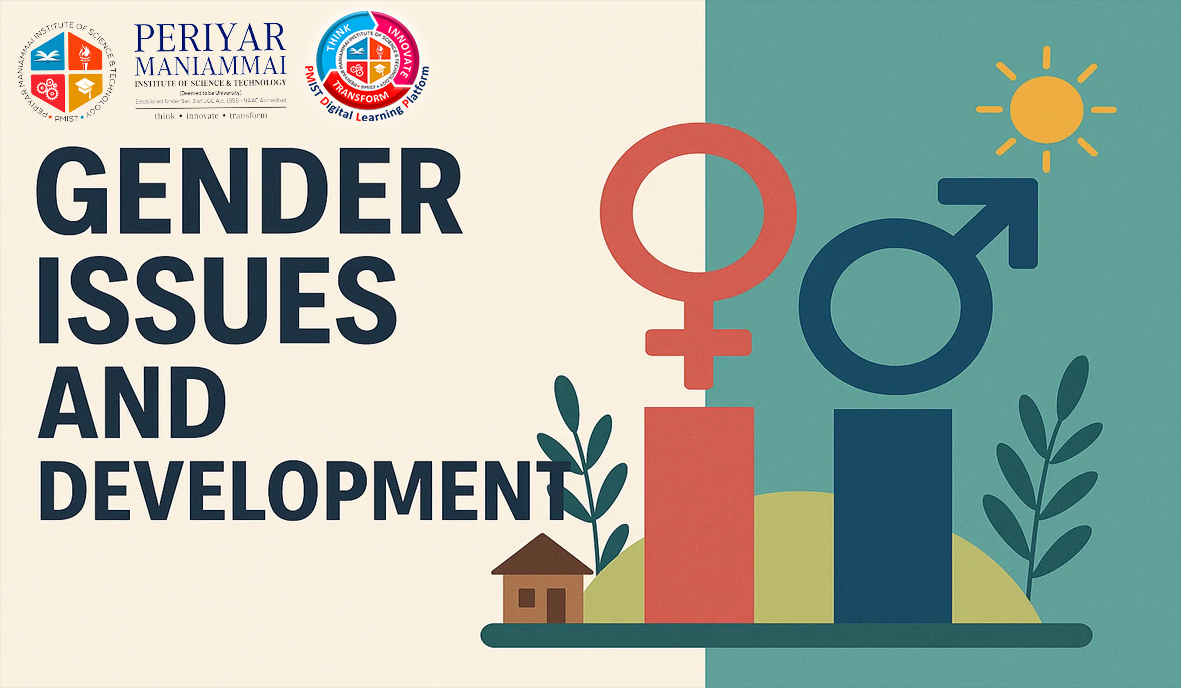

Note: Please check your Spam or Junk folder, in case you didn't receive the email with verification code.
Adaptive:Personalised Learning
This course explores gender as a social construct and examines the various issues and discriminations faced by individuals across gender identities. It provides a critical understanding of gender in the context of development, empowerment, legal frameworks, and constitutional provisions. The course aims to sensitize students toward gender equity and encourages an inclusive approach to societal progress.
By the end of the course, students will be able to:
Understand the concept of gender and its role in societal development.
Identify various forms of gender-based discrimination and analyze their root causes.
Evaluate the importance of empowerment in achieving gender equity.
Interpret constitutional provisions and policies related to gender justice.
Gain awareness of legal protections and recent acts supporting gender equality.
Understanding gender: concept and distinctions between sex and gender
Historical perspective on gender roles and stereotypes
Gender and socialization
Role of gender in development discourse
Gender equality as a component of inclusive growth
Forms of gender-based discrimination: domestic, workplace, education, health
Violence against women and marginalized genders
Intersectionality: gender, caste, class, religion, and ethnicity
Gender inequality index and global perspectives
Media and gender representation
Concept of women empowerment
Strategies for gender-inclusive development
Role of education, employment, and political participation
Community-based programs and self-help groups (SHGs)
Role of NGOs and international organizations (UN Women, UNICEF, etc.)
Fundamental rights and directive principles related to gender
Role of the Constitution in promoting equality
Gender justice through judiciary and constitutional interpretation
Role of commissions: NCW, NCPCR, etc.
Case studies of constitutional remedies in gender issues
Domestic Violence Act (2005)
Dowry Prohibition Act (1961)
Sexual Harassment of Women at Workplace Act (2013)
Protection of Children from Sexual Offences (POCSO) Act (2012)
The Transgender Persons (Protection of Rights) Act (2019)
Recent amendments and developments
This module introduces students to key gender concepts and their evolution. It lays the foundation for understanding how gender impacts individual and societal development across different spheres.
 Introduction to Gender Issues and Development
Introduction to Gender Issues and Development
 GID - Assessment 1
20 Questions
GID - Assessment 1
20 Questions
Examines various forms of gender-based discrimination and how they manifest in everyday life. It also introduces students to intersectionality and the role of media in reinforcing or challenging stereotypes.
 Discrimination and Gender Issues
Discrimination and Gender Issues
 GID - Assessment 2
20 Questions
GID - Assessment 2
20 Questions
Focuses on empowering women and marginalized genders through development strategies. It highlights the importance of education, leadership, and institutional support in creating a gender-equitable society.
 Development and Empowerment
Development and Empowerment
 GID - Assessment 3
20 Questions
GID - Assessment 3
20 Questions
Provides an overview of how the Indian Constitution supports gender justice. Students learn about constitutional rights, judicial interventions, and the roles of national commissions and legal institutions.
 Constitutional Provisions for Gender Justice
Constitutional Provisions for Gender Justice
 GID - Assessment 4
20 Questions
GID - Assessment 4
20 Questions
Covers key legal frameworks enacted to protect and promote gender rights in India. This module enables students to understand their legal rights and recent legislative efforts toward gender equity.
 Acts and Enactments Supporting Gender Equality
Acts and Enactments Supporting Gender Equality
 GID - Assessment 5
20 Questions
GID - Assessment 5
20 Questions
 GID - Final Assessment
50 Questions
GID - Final Assessment
50 Questions
The certificate issued for the Course will have
Only the e-certificate will be made available. No Hard copies. The certificates issued by Periyar Maniammai Institute of Science & Technology (PMIST). can be e-verifiable at www.ulektzskills.com/verify.



 90 hours Learning Content
90 hours Learning Content 100% online Courses
100% online Courses English Language
English Language Certifications
Certifications